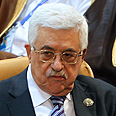
PA leader: Government short of funds
Abbas says government employees will not receive full salaries this month because donor countries have not delivered promised aid
Palestinian President Mahmoud Abbas says that government employees will not receive full salaries this month because donor countries have not delivered promised aid.
The US and Arab countries have failed to come through this year with the aid money they have pledged, leaving the Palestinian Authority that governs much of the West Bank in a budgetary shortfall that has contributed to rising prices and delays in the payment of government salaries.
The economic conditions have helped spark small but growing protests in the West Bank. Last week demonstrators halted traffic in key Palestinian cities.
There are some 154,000 Palestinian civil servants, and their salaries help keep their extended families out of poverty.
Abbas spoke to reporters Saturday in the West Bank city of Ramallah.
Meanwhile, there have also been calls to reopen the Paris agreement between Israel and the Palestinian Authority.
The cash-strapped Palestinian Authority said on Sunday it has asked Israel to consider overhauling a key economic agreement that has determined its customs and tax rates for the past 18 years, in the wake of street protests against high prices.
UN agencies and Palestinian economists say the economic sections of the Oslo interim peace deals, outlined in the Paris Protocol of 1994, have been implemented by Israel selectively and mostly to its benefit.
"Eighteen years of the Paris economic agreement have become a heavy burden on the Palestinian people and led to very difficult financial and economic conditions," Palestinian Civil Affairs Minister Hussein al-Sheikh told Reuters.
The aid-dependent Palestinian Authority (PA), which exercises limited self-rule in the occupied West Bank, has also been plunged into its deepening financial crisis by a drop in assistance from Western and wealthy Gulf backers.
The Paris Protocol maps out an economic blueprint for a customs union between Israel and the Palestinian territories and pegs value added tax to Israeli rates, now at 17 percent, effectively blocking any steep price cuts in the West Bank.
In another blow to the Palestinian economy, provisions allowing the Palestinians to make free trade agreements with other states and mandating access to Israeli markets have not transpired.
But Samir Abdullah, director general of the Palestine Economic Policy Research Institute, said the Paris accord need to be renegotiated to free Palestinians from their dependence on Israeli oversight and allow them more leeway to trade abroad.
"Israel has not committed to open its market to the Palestinians while the Palestinian market has remained open to it," he told Reuters.
Mechanisms for economic dialogue between Israel and the Palestinians were mandated by the interim Paris deal, which like the Oslo accords, was meant to last for only five years pending a final peace agreement between Israel and the Palestinians.
Meanwhile in Gaza residents are set to enjoy a reduction in prices: Muhammad al-Shawa, Director of the Gas Station Owners' Association told Hamas news site Alresalah of an agreement with the Hamas government vis-à-vis lowering prices of gas imported from Egypt.
Al-Shawa added that the association decided to lower the price of Egyptian gas from NIS 4.1 ($1.02) a liter to NIS 3.9 ($0.97) a liter.
The announcement comes in response to recent reports in Palestinian media that dealt with an expected rise in petrol prices. The reports were denied by the Hamas' economy ministry who claimed that the price hike would only be implemented on gas imported from Israel and not gas imported from Egypt.










